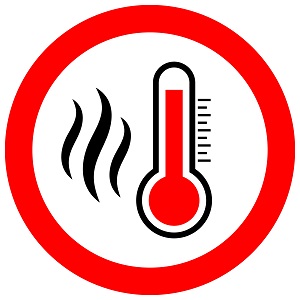By Eric D. Morton
New CAL/OSHA Heat Rules
California’s Occupational Safety and Health Standards Board approved a new “Heat Illness Prevention in Indoor Places of Employment” standard. This standard, which is similar to Cal/OSHA’s Outdoor heat Illness standard, went into effect on July 23, 2024, and requires many employers to take steps to prevent employee exposure to the risk of heat illness while indoors.
This standard requires employers of have a Indoor Heat Illness Prevention Plan (“IHIPP”) if their employees are exposed to indoor heat exceeding 87 degrees (except for periods of less than 15 minutes), or if indoor temperatures exceed 82 degrees and employees wear clothing that restricts heat removal. The standard does not apply to employees who work at home or are not exposed to temperatures of 82 degrees or less. More information of this standard can be found here.
Artificial Intelligence Update
AI is all over the news and its impact is being felt everywhere. I recently tuned into a forum held by a division of the U.S. Patent and Trademark on AI. There were numerous speakers from a wide variety from the public agencies and private sector organizations. One speaker from U.S. Government said that every department and agency in the Federal government is dealing with AI in one fashion or another. Another speaker warned of a looming dark age of child pornography.
A lot is happening around AI. There are several lawsuits pending regarding the rights of artists and other copyright owners whose works are used to train large language models, among other issues. The U.S. Department of Justice is asking the U.S. Sentencing Commission to consider enhanced sentences for certain crimes committed with AI. The Federal Elections Commission is considering rules regulating the use of AI in political advertising (think: fake videos and photos of opponents).
European Union has adopted the “AI Act” which will be implemented over the next few years. The AI Act will have a significant impact on companies that do business in Europe or with Europeans, even if those businesses are not located in Europe.
The No Fakes Act.
One of the most significant developments is the bill introduced in the U.S. Congress entitled “The No Fakes Act”. This act will create a Federal property right protecting individuals’ image, voice and likeness from unauthorized digital replicas. Several states, including California, already have similar laws, but there are no specific Federal protections. The right to exclusive to one’s name, image, and voice (also known as a “right of publicity”) isn’t covered in existing intellectual property law such as copyright and trademark laws.
AI has been used to create fake voices, images, songs, photos, and videos of individuals – some famous and often not famous. Many individuals, including many who are not celebrities, have been trolled online by the use of their images in realistic looking fake pornography (this is way beyond Photoshop). The No Fakes Act would create rights similar to copyright laws, and would include deceased persons for certain periods of time after their death.
The U.S. Copyright Office specifically urged Congress to pass such a law. The entertainment industry lobbied heavily for this bill (no surprise) as did many advocacy groups for individuals whose images have been misused online. There are a number of proposed safe harbors and exclusions, so we shall see how the law finally takes shape. There will be more laws and regulations, and litigation, to come.
Eric D. Morton is the principal attorney of Clear Sky Law Group, P.C. He can be reached at 760-722-6582, 510-556-0367, and emorton@clearskylaw.com


